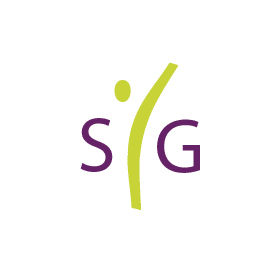Special Interest Groups
One way EACH facilitates networking between members with similar interests is through Special Interest Groups (SIGs). SIGs are intended to generate a clear focus for members who wish to push forward and develop an important area related to communication and healthcare. SIGs can be related to an area of teaching, research, policy; and/or a specific group of healthcare professionals – eg veterinarians, dentists etc. SIGs are only open to EACH members
What SIGs offer
SIGs allow groups of EACH members with common interests to work and network together toward common goals in a specific area. Each SIG is given a space on the EACH website to publicize their activities and is also invited to submit activities and announcements in the monthly EACH newsletter. Each SIG is also given priority for a designated time/meeting space at EACH sponsored ICCH conferences and can also sponsor online webinars through EACH.
Current SIGs include:
SIG - Improv in Health Professions Education
We are a group of educators and researchers who use improvisational theatre techniques to teach essential healthcare skills.
Improvisational techniques have been used in health communication training to teach skills related to empathy, communication, teamwork, and resilience. This work started with Viola Spolin in the United States and has roots in the UK through Keith Johnstone’s Impro. Improv is based on the concept that we can better connect with each other if we learn how to listen closely and respond in a way that enriches the lives of ourselves and others. Medical Improv is a growing field in the United States and in other countries. We would like to create a community to bring practitioners together. By creating spaces and mechanisms to share ideas, insights and experiences we can move the field forward with a diversity of perspectives.
SIG - Communication in oral healthcare
The special surgical feature of dentistry and high prevalence of dental anxiety in patient groups requires dental professionals to take extra care on patients’ well-being and their treatment experience. This SIG is therefore to provide a networking platform for communication researchers, dental clinicians and teachers to exchange ideas/thoughts, knowledge, expertise and experiences in order to promote research and teaching collaborations and strengthen inter/national links. We welcome anyone who has passion and interests related to communicative aspects of dental/oral healthcare.
SIG – Communication in surgical subspecialties
Communication skills teaching has traditionally been aimed at “all comers” through a primary care lens, and does not translate directly to surgeons. This SIG will be a central location for stakeholders in surgical communication to share clinical, research, and teaching ideas, to design and execute research projects, and to devise, implement, and assess communication curricula.
SIG - Communication in veterinary healthcare
Communication in veterinary medicine is a complex activity, as it requires multiple stakeholders to be on the same page in the process of reaching collaborative decisions in animal care. A key aim for this SIG is supporting the development and use of communication strategies for the whole circle of care surrounding an animal patient to improve patient outcomes.
SIG - Healthcare communication education research
The main aim of this SIG is to establish a network of EACH members that are researchers active in the field of learning and teaching healthcare communication in order to facilitate communication and the opportunity to exchange research plans and expertise.
SIG - Interprofessional education (IPE)
Interprofessional Education (IPE) occurs “when two or more professions learn about, from and with each other to enable effective collaboration and improve health outcomes.” Current literature involves discussion on the need for IPE, but there is less focus on the actual communication skills needed within interprofessional teams and how these will improve collaboration and health outcomes. The purpose of this Special Interest Group is to encourage global exchange and collaboration among participants concerning current models and ways to approach potential challenges in IPE, specifically focusing on communication. Potential for ongoing and/or collaborative and future educational scholarly activity is desired.
SIG - Healthcare communication in nursing
It can be argued that healthcare communication research, teaching and curriculum development has to some extent been ‘dominated’ by the medical profession, who have worked hard to develop a systematic and collaborative approach to this important aspect of education. Whilst most of the learning from this group is directly transferable to nurse education it seems timely to examine the specific challenges and needs of nursing as a profession and by working collaboratively to enhance the sphere of influence going forward. Articulation, development and evaluation of the nurse-specific and nurse-sensitive knowledge, models and strategies that influence and optimize nurses’ independent and interprofessional healthcare communication practice will be enriched through this SIG.
SIG - Language and cultural discordance in healthcare communication
Our aim is to foster a coherent interdisciplinary and inter-professional approach to researching and training language and cultural discordance in healthcare communication. We invite like-minded researchers, clinicians, educators, students and policy makers to join us to form an international network, explore potential research areas, and develop international collaboration.
Network of sequence analysis
The Verona Network on Sequence Analysis met to study critical health provider–patient communication sequences in which patients signal or express emotional distress. The lack of a common ground in defining cues and concerns led to the decision to launch a consensus process on the definition of cues and concerns and, subsequently, on the definition of health provider responses to such expressions. With the purpose to facilitate comparative research on the basis of a shared language, the process gave rise to the Verona Coding Definitions of Emotional Sequences (VR-CoDES) consisting of two manuals, one for cues and concerns expressed by patients and one for health provider responses.
Early career EACH
The yEACH network aims to connect and support all early career individuals within EACH whether they are researchers, educators or clinicians. The yEACH network is open to any active member of EACH who is within ten years of starting their academic research and/or teaching career within healthcare communication.

